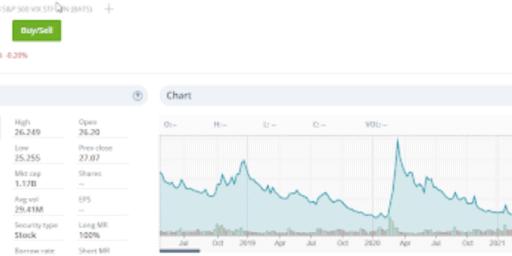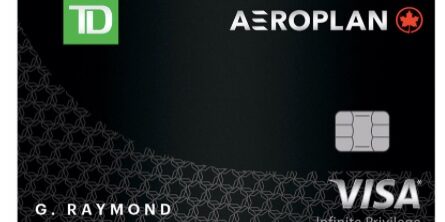Wealthsimple Trade vs. TD Direct Investing
The Wealthsimple vs TD Direct Investing often boils down to a simple question: How much do you value price over user experience, full service, and physical location convenience? For a broader view of your brokerage options, you can check out my Best Online Brokers in Canada comparison.
Wealthsimple Self Directed Investing (formerly called Wealthsimple Trade) offers a no-frills DIY trading platform with zero trading fees, making it an attractive option for cost-conscious investors. On the other hand, TD Direct Investing delivers the wide selection, robust tools, and customer support you’d expect from a Big Bank brokerage – but it comes with a higher price tag.
In this Wealthsimple Trade vs TD Direct Investing comparison, we’ve taken the key highlights from our full reviews and line them up side-by-side. You’ll get a clear picture of how these platforms differ, from fees to features, and which one aligns best with your needs.
Then, once you’re done reading, I encourage you to compare your choice to my #1 brokerage option by checking out my Qtrade Review (they also have an excellent promo on right now).
Wealthsimple Trade vs. TD Direct Investing Quick Comparison
Here are the details of TD’s and Wealthsimple’s DIY investing platforms, so you can get a clear picture of how their offerings compare.
TD Direct Investing | Wealthsimple Trade | |
Investment Options | Stocks, ETFs, Mutual funds, Money markets, Bonds, GICs, Options, IPOs, T-Bills | Stocks and ETFs only |
Free ETFs | No (but free mutual funds, bonds, GICs, T-bills, money markets) | Free to buy and sell all ETFs |
User Experience | ||
Customer Service | Decent customer service, major push to improve response time. | Almost nonexistent customer service. Next to no support. |
Trading Fees | ||
Account Fees | $25/quarter (fee can be waived in several ways) | None |
Research Tools and Education Materials | Excellent app and resources with free real-time stock info. | Basic “How to invest” video resources on their site. No analytics or in-depth asset information. Stock info is 15 minutes old. |
Safety | CIPF insured, IIROC regulated | CIPF insured, IIROC regulated |
Mutual Fund Purchases | ||
Promo Offer | $50 sign-up bonus | |
Sign Up |
You can also check out our Wealthsimple Trade review and our TD Direct Investing review for even more specifics and our full opinion.
Wealthsimple vs. TD: Safety and Security
The Toronto Dominion Bank of Canada was founded in 1855 and is one of Canada’s Big Banks. TD launched a self-directed investment service in 1984 and became Canada’s first online trading service in 1992.
Wealthsimple was founded in 2014, and before they started to drift away from their roots, I had them rated amongst the Best Robo Advisors in Canada. In 2019 the company began a dramatic expansion that saw them launch their online brokerage platform. They also decided to expand into the UK and USA – before having to pull out of those companies due to a failed ability to compete.
These days the company has split its focus on everything from cryptocurrency trading (where they are a Canadian leader – and which is very profitable for them) to mortgages. That said, Wealthsimple is no longer a small startup. They are majority-owned by one of the biggest companies in Canada, and have over $30 billion in assets under management.
In other words, both TD and Wealthsimple are well-established, legit companies.
Wealthsimple Trade and TD Direct Investing are IIROC regulated and CIPF insured for up to $1 million. Wealthsimple’s accounts are held in trust at a CDIC member institution, while TD is a CDIC member institution. They both use high-level encryption and bank-standard security to protect your data. Basically, you can trust both Wealthsimple and TD with both your money and your information.
While investing always carries some risk, the only kind of risk you have to worry about with TD and Wealthsimple is based on your investment decisions – not on the platforms or companies.
Wealthsimple vs. TD: Fees
Wealthsimple Trade’s big claim to fame is that it’s commission-free. They don’t charge fees to buy or sell stocks or ETFs, and they don’t have account fees. They were the first company to offer a commission-free model (National Bank Discount Brokerage followed their example).
Obviously, No-fee investing sounds amazing, but keep a couple of things in mind:
- If they’re not getting money from you directly, they’re getting it some other way. That other way usually involves selling your investment information.
- You often get what you pay for. Just saying.
Meanwhile, TD Direct Investing, has some of the highest fees of any DIY brokerage. You pay $9.99 per trade unless you’re one of their Active Traders and make over 150 trades a month. That’s…a lot of trades, so you’re probably looking at paying the higher fee.
TD does offer commission-free trading on some investments including:
- Mutual funds
- Bonds
- Strip Coupons
- GICs
- T-Bills
- Other money market products
But the rest of your trades will incur the $9.99 fee.
TD also charges $25/quarter for account maintenance. It’s not a huge deal because it’s fairly easy to get out of (if your balance is over $15,000, or if you qualify for their TD Household Program, the fee is waived).
Really, when you compare fees for Wealthsimple Trade and TD Direct Investing, you’re looking at the highest and lowest ends of a spectrum. And, to be honest, neither is the best. Brokerages like Questrade have low fees and a phenomenal platform as well. You can read more in our Questrade vs Wealthsimple comparison.
Wealthsimple vs. TD: Account Options
Continuing the theme of “you get what you pay for,” Wealthsimple Trade has an extremely limited selection of accounts available. You can open a TFSA, an RRSP, FHSA and a personal non-registered investment account. That’s it. Nothing else.
TD, like most other DIY online brokers, offers a more complete range of accounts, including:
- Margin accounts
- Cash accounts
- TFSA
- RRSP
- RESP
- RIF
- LIRA
- LIF
- RDSP
- FHSA
As well as personal, joint, corporate, and trust versions of many accounts.
Wealthsimple vs. TD: Stocks and ETFs
Our theme continues as we look at Wealthsimple and TD’s investment options. Wealthsimple Trade offers stock and ETF purchases only. Meanwhile, TD offers the full range of investment options including:
- Stocks
- ETFs
- Mutual funds
- Money markets
- Bonds
- GICs
- Options
- IPOs
- T-Bills
Wealthsimple Managed Investing, Wealthsimple’s robo advisor branch, gives you access to more than just stocks and ETFs, so this limited selection is clearly a choice Wealthsimple made in order to keep trades simple and fees low. Which means that (all together now) you get what you pay for.
Wealthsimple vs. TD: ETFs vs Mutual Funds
Wealthsimple Trade allows you to purchase ETFs commission-free, as we’ve said, but a Management Expense Ratio (MER) is still deducted from your account. This is standard practice, but it’s still worth mentioning. Your investments, even zero-commission ones, cost you something.
TD offers a commission-free alternative to ETFs, and that’s TD e-series mutual funds. These index funds track the performance of specific markets just like ETFs. While they’re commission-free like Wealthsimple Trade’s investments, the TD e-series funds have an MER over 0.3% across the board, and as high as 1.38% in some cases.
That makes them cheaper than many mutual funds but far pricier than most ETFs, including the ones you can buy through Wealthsimple Trade. We’re not big fans of mutual funds in general, so this isn’t really an exciting feature as far as we’re concerned (no-fee ETFs like many other DIY brokers offer, would be better).
Wealthsimple vs TD: Available Promotions
TD Direct Investing currently doesn’t offer any promotions for a new account (they have a free trades offer that moves in and out from time to time. Wealthsimple is offering a $50 cash bonus when you open a brokerage account through self-directed investing.
By far the best promotion right now is this Qtrade promo offer. I think this company is aggressively pursuing market share during “RRSP season” because this offer is ridiculous. Qtrade is going to give you at least $150 just to open an account – then scale that bonus up to $2,150. For example, if you deposit $5,000 into your account, you’re going to get $400 instant cash back (an instant 8% return). Plus, you’d get the free trades, and they’ll pay your fees to move over from another brokerage as well.
Wealthsimple vs. TD: Mobile App & Advanced Investing Tools
Wealthsimple Trade has a dedicated trading app, which is free to download from the app store of your choice. We find their trading platform to be clunky to work with, and the information it provides is not so much streamlined as inadequate.
Serious traders will be turned off by the fact that basic Wealthsimple Trade account holders have to make do with 15-minute-old stock data (Wealthsimple Premium members pay $3/month for real-time snap quotes).
TD Direct Investing is built into the TD app, which is ranked #4 in Finance in the Apple App Store. It’s been recently upgraded and features free real-time snap quotes, plus additional investment data. Investors generally seem to be happy with the changes and the functionality.
Wealthsimple vs. TD: Customer Support
Wealthsimple Trade is a discount DIY platform, and that goes for customer service as well! You can search their Trade Help Centre yourself and contact an email address if you really can’t find the info you need.
It’s bare-bones, to say the least (remember when we talked about getting what you pay for?).
By contrast, TD Direct Investing prides itself on excellent and fully featured customer service. They added 35% more licensed investment representatives in 2020-2021 to help improve customer wait times. They also provide investors with high-level analytics and real-time data to help them make the best possible decisions.
Wealthsimple or TD FAQ
Wealthsimple vs. TD – Which One is Better For You?
After breaking down all the details, the big question remains: Which platform takes the top spot for the best DIY broker? Will it be the zero-commission trading offered by Wealthsimple Self-Directed Investing, or the premium service and robust features of TD Direct Investing – albeit at a premium price?
The answer might surprise you: Neither
While Wealthsimple Self-Directed Investing’s no-commission trading sounds tempting, it falls short in other crucial areas. Limited account and investment options, lackluster customer support, and the absence of real-time data make it difficult to justify the savings on trading fees. For most investors, these trade-offs will feel like more of a hassle than they’re worth. Plus, I hate the idea that Wealtshimple is selling my data for extra profit (Google “payment for order flow” to find out more about this).
On the other hand, TD Direct Investing delivers a feature-rich platform – but at a pricey premium. From advanced analytical tools to top-notch customer service, TD offers a fully developed DIY trading experience. The downside? It comes with some of the highest fees in the industry.
If you want my updated-monthly recommendation, make sure to check out the latest in the Best Online Brokers in Canada article (or the Best Robo Advisors in Canada article if that’s more your style).
I've Completed My Million Dollar Journey. Let Me Guide You Through Yours!
Sign up below to get a copy of our free eBook: Can I Retire Yet?











A generally fair review but with a few mistakes. For example,TD does not offer commission free purchases of bonds and strips. In each case the commission is built into the price. One can judge the size of the commission by looking at the difference between the buy and sell price for bonds on the TD Direct Investing site.